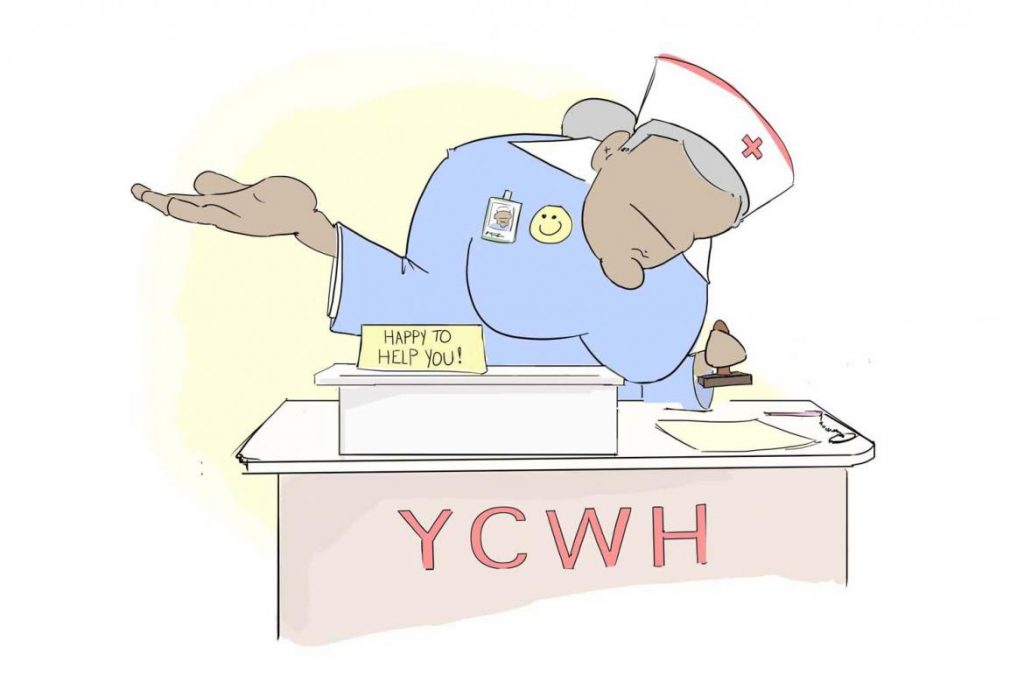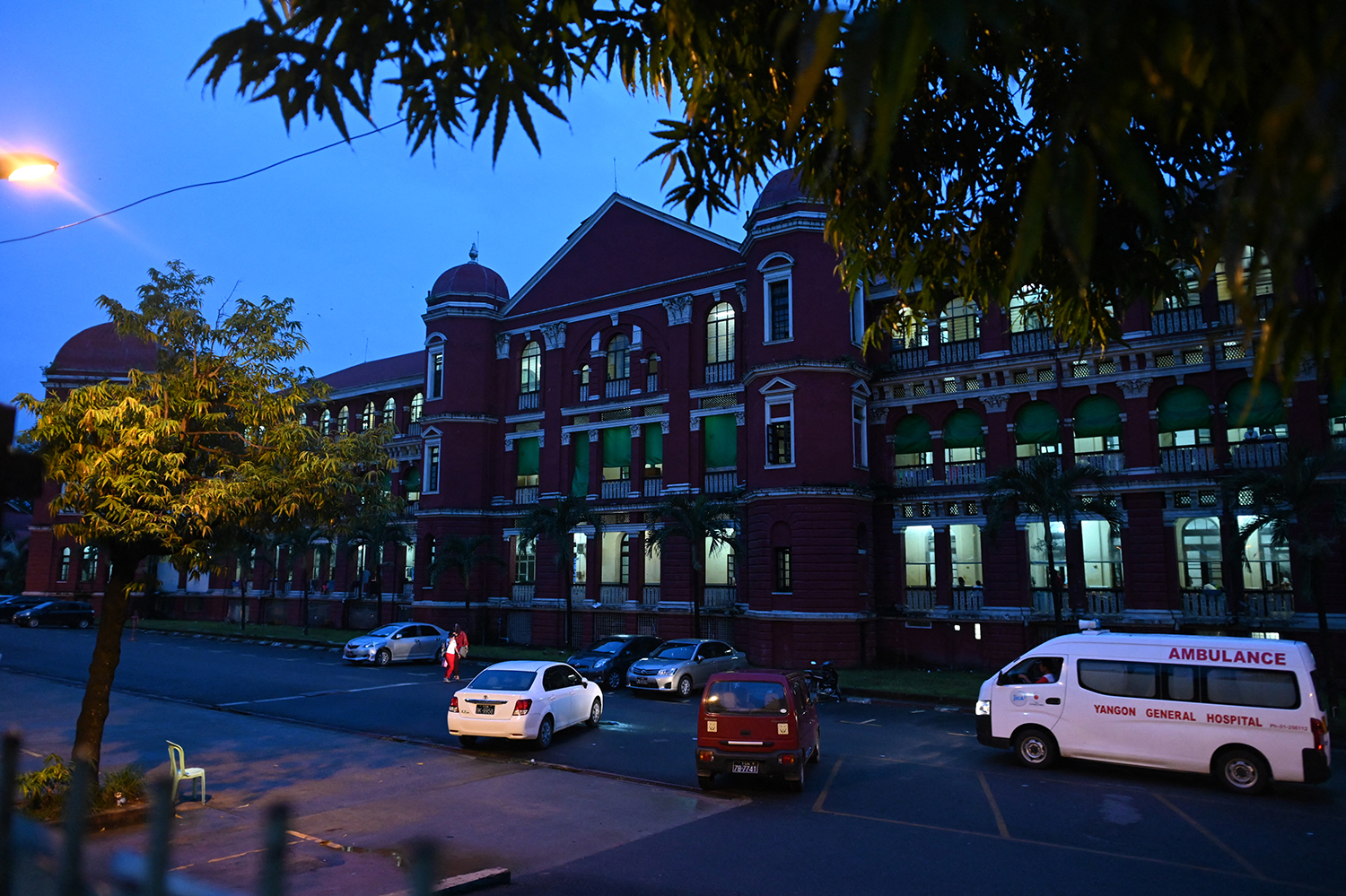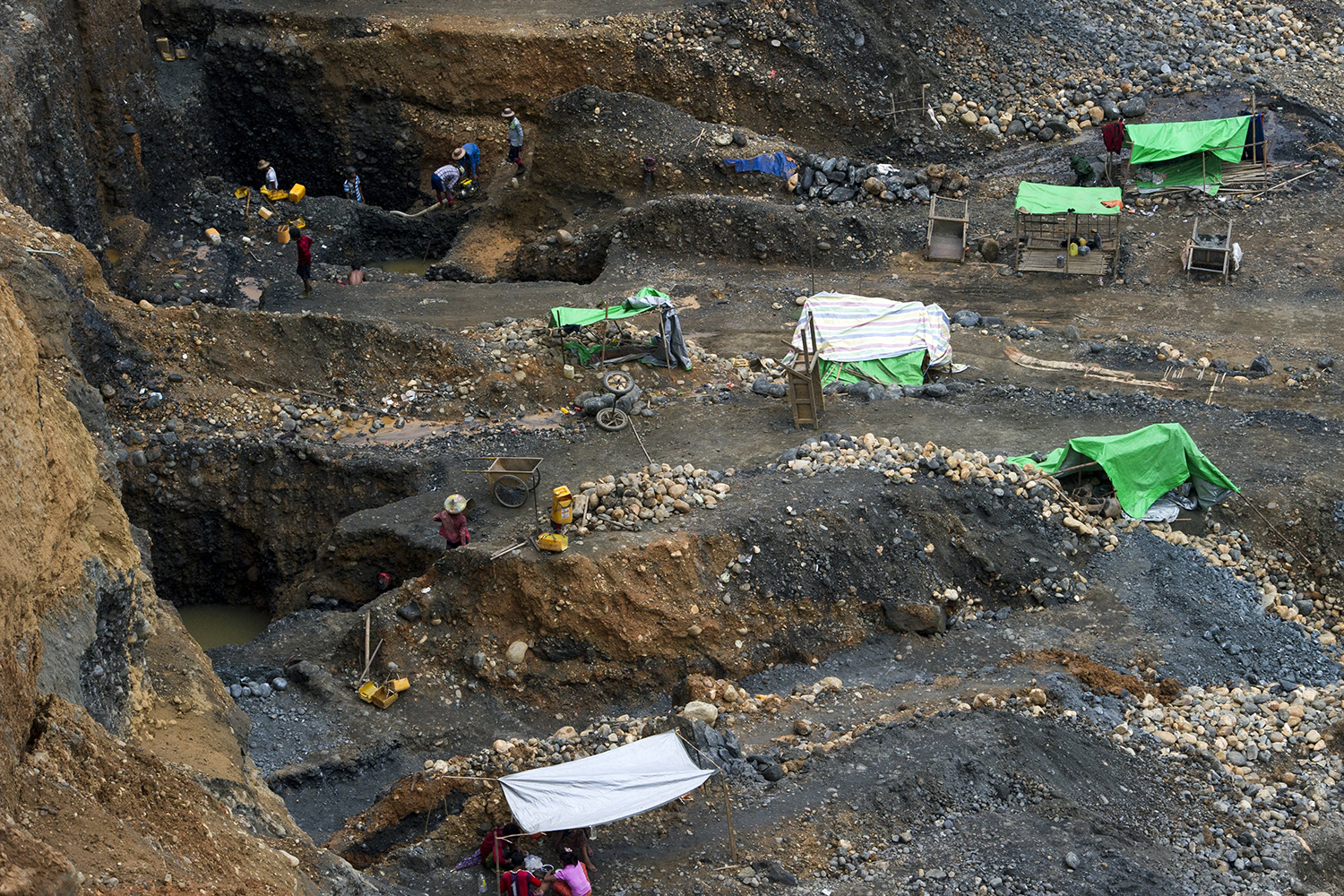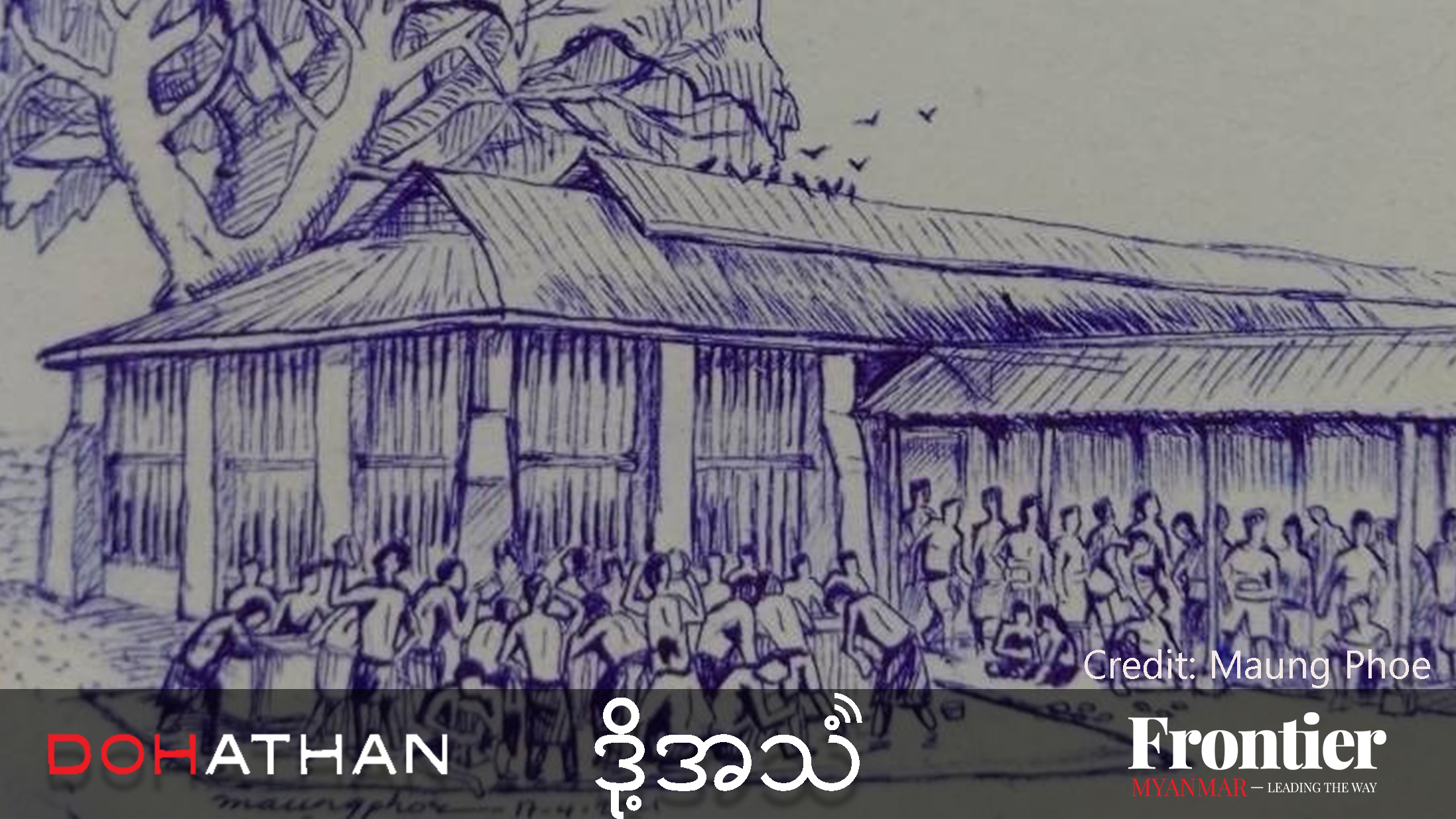Bribery and corruption are rife at public hospitals, where patients can expect endless requests for “donations” but donation boxes are nowhere to be seen.
By SU MYAT MON | FRONTIER
CORRUPTION IS SO pervasive in Myanmar that it even stalks the corridors of government hospitals, as I discovered during a recent visit to Yangon Central Women’s Hospital.
The 750-bed YCWH, on Baho Road in Lanmadaw Township, was built in 1887 during the colonial era, when it was known as Dufferin Hospital.
Its patients cannot afford private hospitals, which have better facilities, modern medical equipment and a more pleasant environment for nursing mothers and their newly born infants.
Public hospitals tend to be congested, noisy, unclean and mosquito-infested, with processions of vendors traipsing through the wards and signs on the walls warning against pickpockets and thieves.
Support more independent journalism like this. Sign up to be a Frontier member.
The medical equipment in public hospitals is often old. Some of the gurneys at YCWH were rusty.
As a public institution and a tertiary care teaching hospital, YCWH has hundreds of staff, including surgeons, doctors, nurses, ward assistants, and administrative and maintenance personnel.
At 8:30am on July 19, Martyrs’ Day, I arrived at YCWH with my sister-in-law for the birth of her first child. We were joined by her mother and my older sister.
The first stop was the emergency department, which is supervised by a doctor from whom my sister-in-law needed medication for her baby.
Then we began registering her for the delivery. After we had completed the registration process, the woman behind the counter had a request… except that it was more of an order. “Give me a donation,” she said.
I was surprised; I couldn’t see a donation box. I asked where it was. “Here,” she said, extending her hand.
I gave her K1,000. It was to be the first of many “donations” I made that day, to nurses and other hospital staff.
After my sister-in-law was taken to the labour ward, we were asked to wait in another room nearby. Minutes later, a woman aged about 45, and wearing a blue longyi and a white blouse, entered. She asked if I intended to give a donation. Again I was surprised. I asked why the donation was needed.
“Well,” she said, “doctors and nurses, including me, have to do dirty things when we are delivering a baby.
“That’s why I asked,” she added.
She was insistent. There were two other women in the room with new-born babies and they joined the conversation. They said they had “donated” K40,000 and K50,000, respectively.
They indicated to me that I should also pay up. I asked the woman who had requested the donation if doctors were aware of what she was doing.
“Of course they know; we all share the money,” she replied, unabashed. I gave her a “donation” of K40,000.
The donation requests keep coming until patients are discharged. Even nurses’ aides and ward assistants expect to be paid. Obviously they are not official requests, but the unspoken understanding is that donations will ensure a better level of service and attention. It’s a bit like blackmail, because if you have the money, who would not pay a donation to ensure a hassle-free stay? And who knows what treatment you will receive if you don’t pay?
Every service required by pregnant women, nursing mothers and new-born infants seems to involve a request for a donation. You’re also expected to pay for everything needed for the delivery, from surgical gloves and hypodermic needles to medicine and soap.
When mothers and their babies are moved from the labour room to the post-delivery room, where a doctor sees them before they are discharged, donations are expected from the ward assistants who push the wheelchairs.
The final “donation” is made at the counter where prescribed medicine is collected; a woman there asked for a “little donation”. She was given K10,000.
The service and facilities at a public hospital might not be as good as that in a private hospital but that does not justify the constant requests for donations at YCWH.
It would be a different matter if the donations were transparent and used to upgrade the hospital’s equipment and facilities.
It is unethical and unseemly for government servants who receive a salary to ask for money from members of the public for whom they are already being paid to provide a service.
Depending on the amount, it may also be illegal for civil servants to accept donations.
Anti-corruption guidelines issued by the National League for Democracy government soon after it took office in 2016 are aimed at eradicating the payment of “tea money” incentives to public servants and banning them from accepting gifts from anyone seeking to benefit from the public servant’s position. The guidelines do not impose an outright ban on public servants accepting gifts, and set limits of K25,000 on individual gifts and K100,000 on the total value permitted in a year.
In the latest index published in February by corruption watchdog Transparency International, Myanmar was ranked 130th out of 180 countries and territories. Among the 10 members of the Association of Southeast Asian Nations, Myanmar was eighth, ahead of Laos (135) and Cambodia (161).
Transparency International defines bribery as “the offering, promising, giving, accepting or soliciting of an advantage as an inducement for an action which is illegal, unethical or a breach of trust”.
However, the Myanmar Centre for Responsible Business says there is no comprehensive or universally accepted definition of corruption. It says most working definitions are variations of “the misuse of a public or private position for direct or indirect personal gain”.
Regardless, donation is not the right word for the payments we were so often asked to make at YCWH. A donation should be given voluntarily; these were coerced, even forced payments.
After all that, there was some good news: my sister-in-law gave birth to a healthy boy, and both are doing well.
Correction, August 20: This article has been amended to remove the following paragraph. We regret the error and sincerely apologise for any offence caused.
“It was then I realised what the little bags that every doctor and their staff had attached to their waist were for: they were to keep money that people had ‘donated’.”







